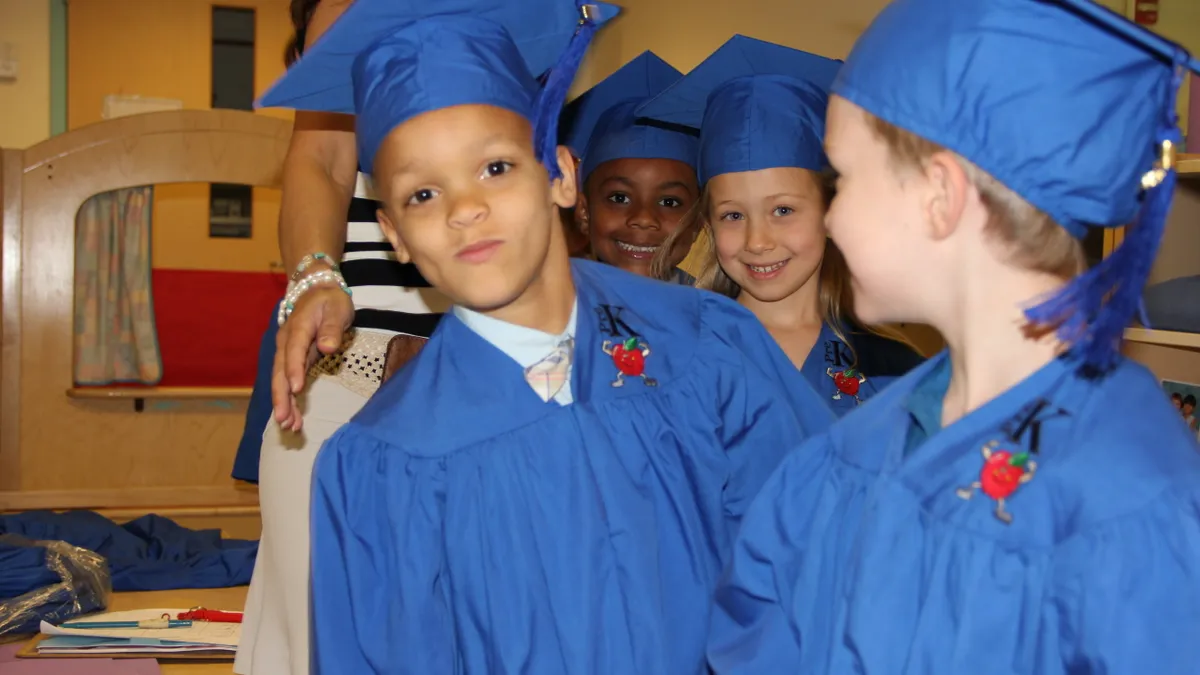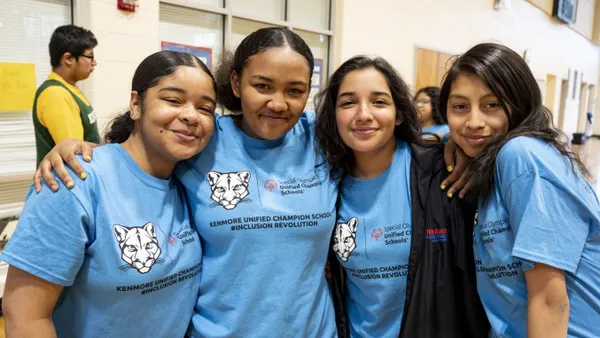Dive Brief:
- Early-childhood education teachers and leaders gathered in Atlanta for the National Association for the Education of Young Children conference received some welcome news Thursday when researchers from five universities released research confirming the benefits of high-quality, classroom-based preschool programs.
-
Appearing in Educational Researcher, the analysis of 22 studies shows that when young children participate in such programs, future placement in special education is reduced by 8.1%, grade retention drops by 8.3%, and high school graduation rates increase by 11.4%.
- “These results provide further evidence for the potential individual and societal benefits of expanding early childhood education programming in the United States,” Dana McCoy, an assistant professor at the Harvard Graduate School of Education, said in a press release.
Dive Insight:
The study included reviews of early-childhood programs that emphasize not only academics, but also health and social-emotional development. The key, researchers say, is that children are attending high-quality programs, which means that there is a well-planned curriculum backed by evidence, that teachers have ongoing coaching and opportunities for professional development and that there is a structure to the school day in addition to allowing children choice.
While some studies continue to find that children who attended certain types of early learning programs don’t achieve at higher levels in the elementary grades than peers who didn’t attend, as was found in Tennessee, some experts suggest that means there is more to learn about how to sustain the benefits beyond preschool. “Classroom experiences early in elementary school can serve as charging stations for sustaining and amplifying pre-k learning gains,” wrote the authors of “The Current State of Scientific Knowledge on Pre-Kindergarten Effects,” released by the Brookings Institution earlier this year. “One good bet for powering up later learning is elementary school classrooms that provide individualization and differentiation in instructional content and strategies.”














